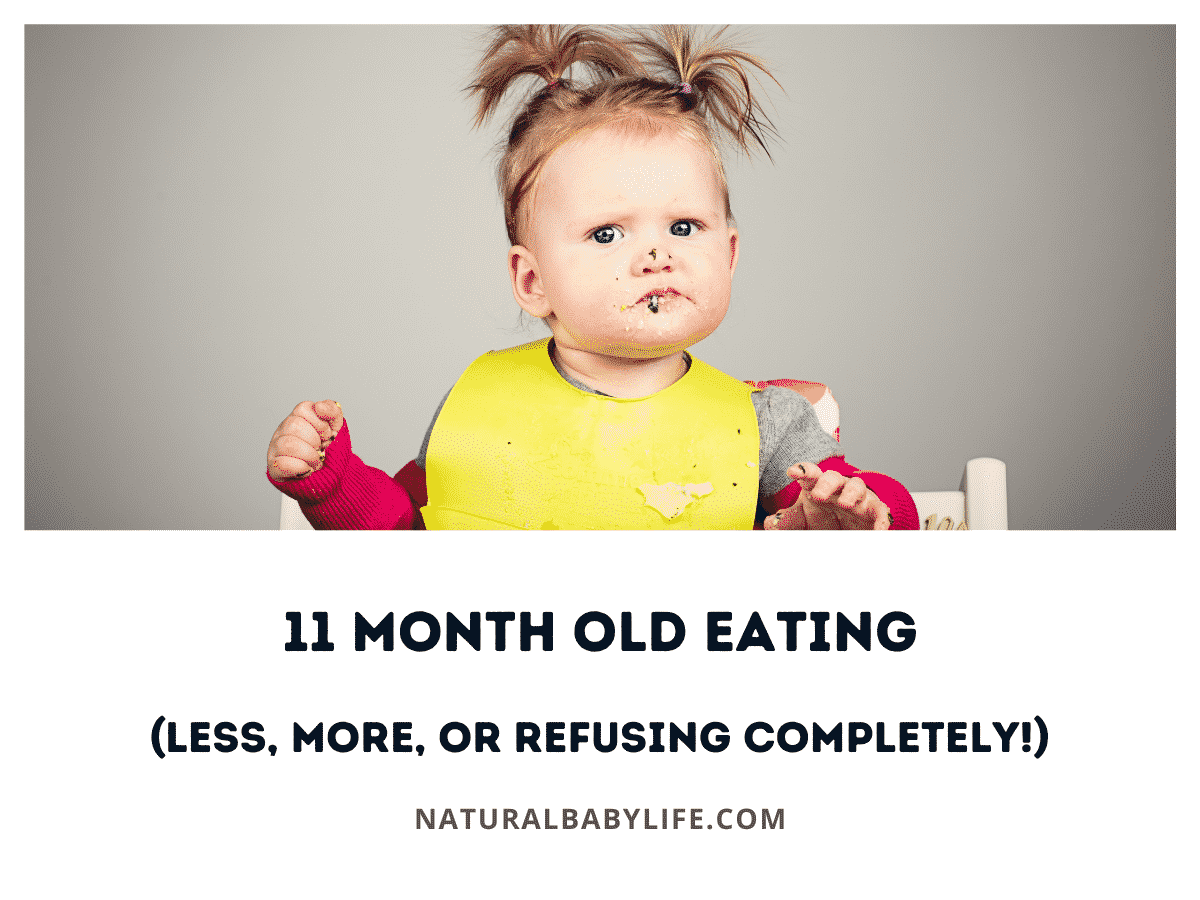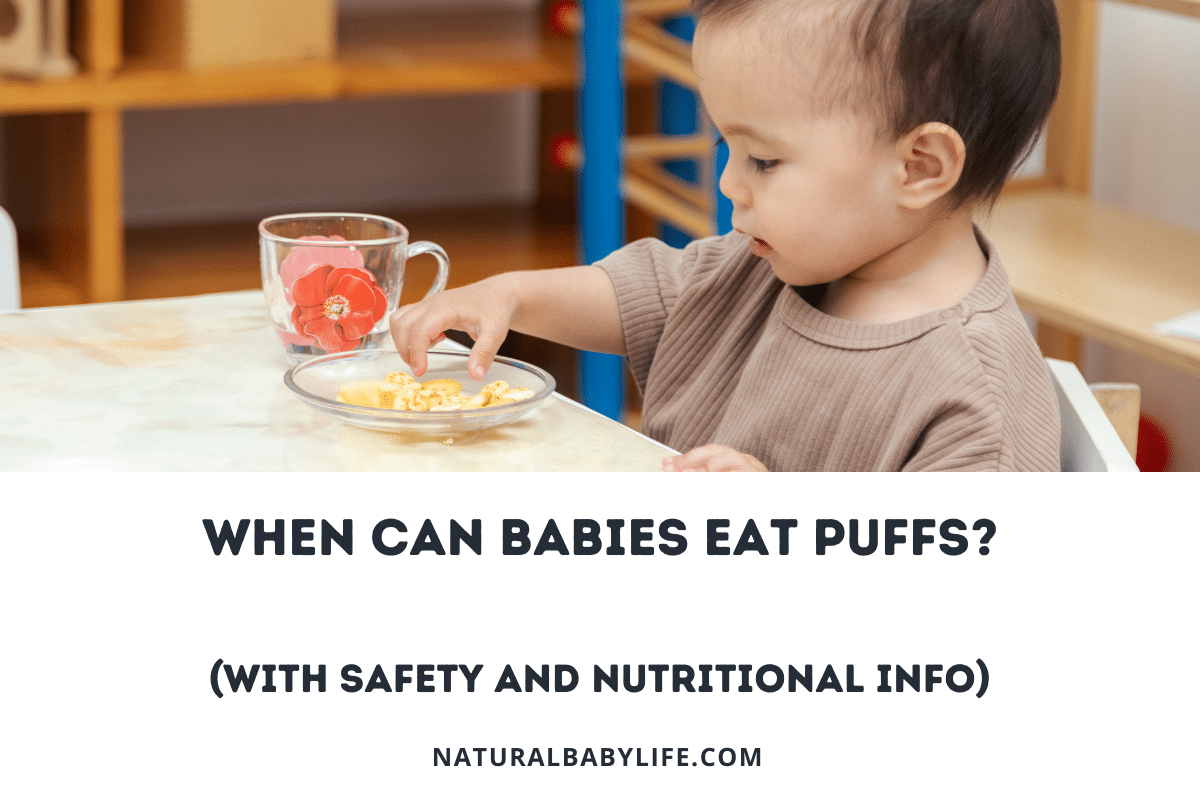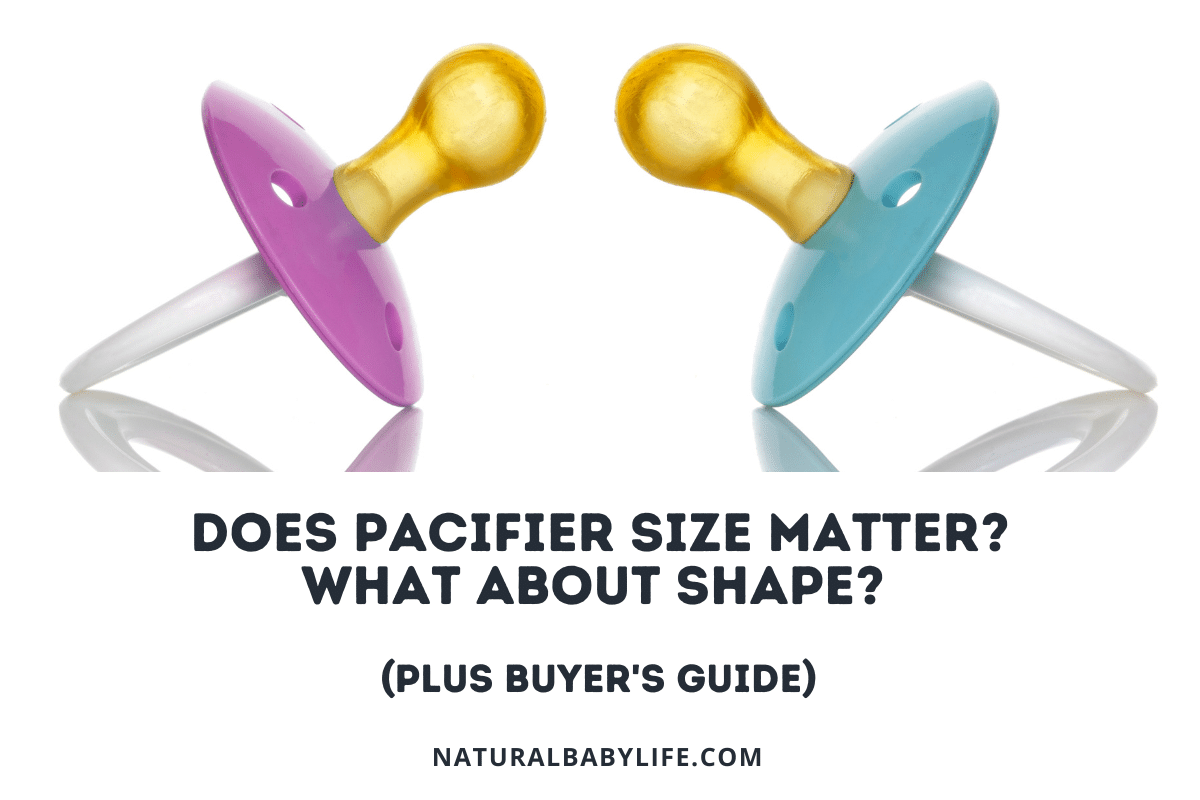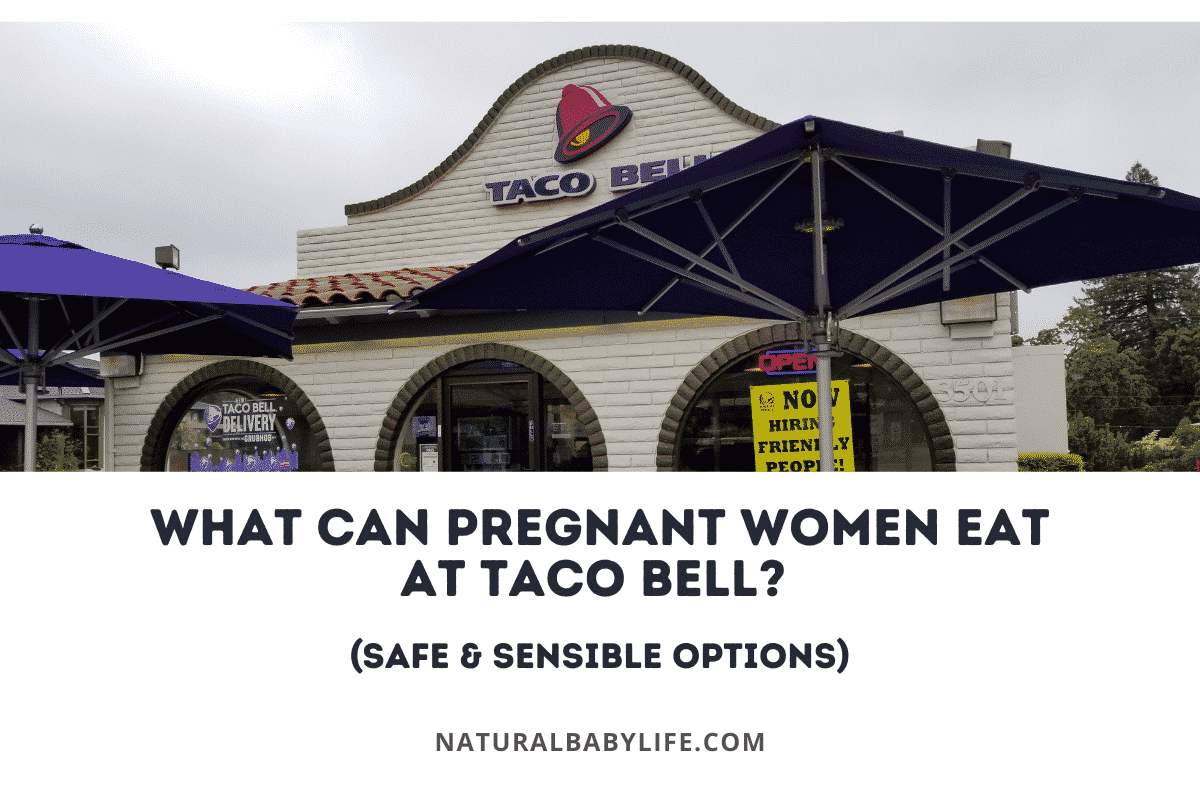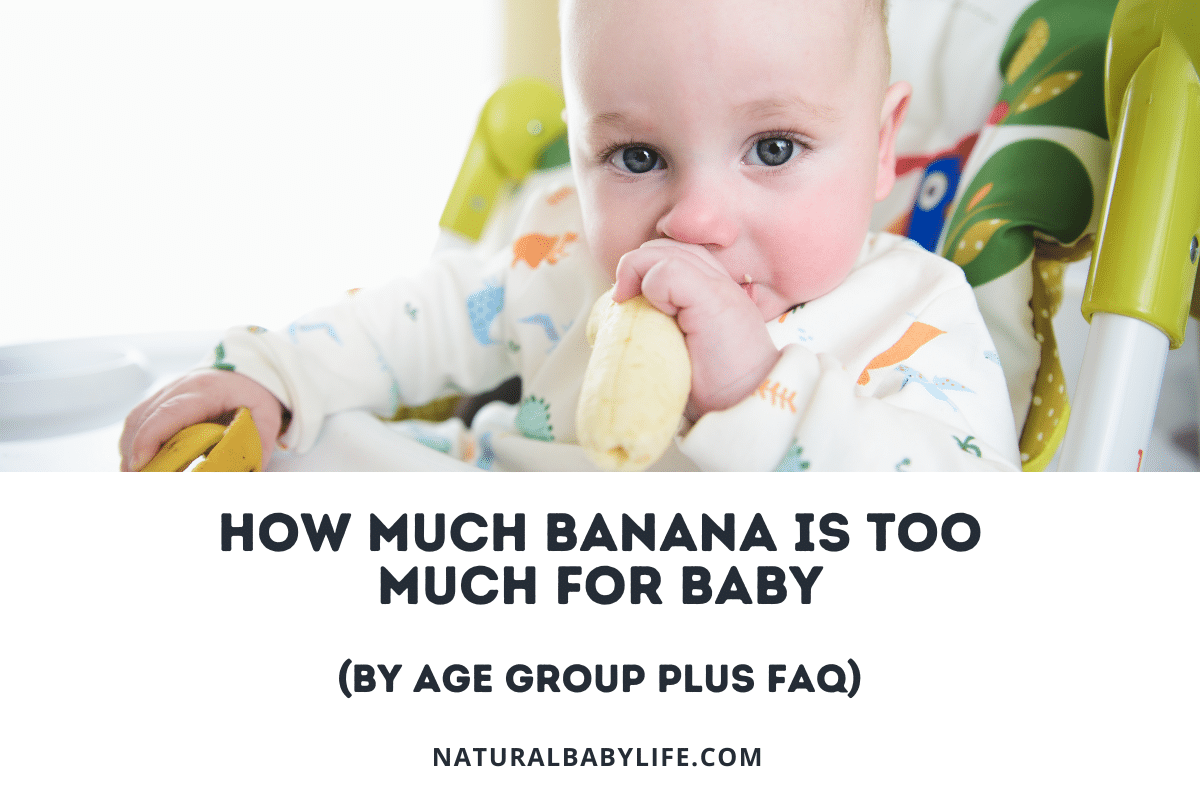Your baby is growing right before your eyes and before you know it, he will turn one year old soon and transition into toddlerhood. As your baby hits 11 months, you notice that his eating habits are changing – be it less, more, or completely refusing food. This period can be a confusing time for parents and you might not know what to do when this happens.
At 11 months, it is completely normal for your baby’s eating habits to change. Your baby might be eating less or more or completely refusing solid food. These changes should not be a cause of concern as long as you are still offering a variety of nutritional food rich in vitamins and minerals, including breastmilk and formula.
Read on as we discuss in great detail what your 11-month old’s eating habits should look like and what you can do if it has drastically changed.
Table of Contents
What should an 11-month-old be eating?
As your baby grows and reaches 11 months, chances are his eating habits have greatly changed compared to a few months before. If the baby is eating less, it is normal for parents to be concerned about this and think about whether your baby is getting all the nutrients that they need.
Some babies flat out refuse food which can cause great alarm to parents, but what exactly is normal baby behavior? It is important to realize that every baby is different and changes in eating patterns should not be a cause of alarm. On the other hand, if your baby has no appetite, is lethargic, and has no energy, it might be beneficial to consult your pediatrician.
WebMD states that at 11 months, your baby is more than capable of using his fingers to pick up bite-sized pieces of food and put them in his mouth. Some babies can even use their hands and try mastering the use of a spoon.
At 11 months, your baby should be eating three times a day – breakfast, lunch, and dinner. You can also offer a morning and afternoon snack so that he can keep up his energy for the whole day. Snacks, crackers, dry cereal, and fruit are all great snack ideas that you can give to your baby.
When it comes to food, your baby needs a variety of different types of food that will provide him the needed nutrients, vitamins, and minerals so that he can grow and stay healthy. Your baby should have whole grains, fruits, vegetables, and dairy products like cheese and yogurt. Your baby also needs protein so that he can grow. Opt for different kinds of protein like beef, chicken, fish, and tofu.
You might notice that since the introduction of solid food, your baby is less interested in taking the bottle or breastfeeding. By 11 months, you can expect your baby to consume only about 16-20 ounces of formula or breastmilk.
This time is also a great period to introduce the sippy cup if you haven’t already done so. When filling up your baby’s sippy cup, opt for natural water and avoid giving fruit juice.
During the 11th month, your baby’s sense of taste is changing which is why all of a sudden – he is eating less, more, or completely refusing food. The best thing that you can do to counter this is to keep introducing different types of food and incorporating them into mealtimes.
What if your 11-month-old isn’t eating solids?
When your baby turns 11 months old, it is normal to notice a change in his eating habits. You will probably notice that your baby is eating less, more, or completely refusing food. This might cause you to worry but remember that this is a phase and you can completely help your baby back into eating healthy and regularly again.
Most 11-month-olds are eating solids with a combination of breastmilk and formula but keep in mind that there will be some babies at this age who are not exposed to solids and this is completely normal too.
If your baby is not eating solids, breastmilk and formula can provide the necessary nutrients needed by your baby. Exclusively breastfeeding is a great option and feeding on demand whenever your baby is hungry.
If you are unable to breastfeed or don’t have a milk supply that can keep up with the baby’s demand, it is okay to supplement with formula.
What if your 11-month-old suddenly stopped eating solids?
Your baby is a great eater until he hits 11 months and you are panicking because you don’t think that he is getting all the needed nutrients so that he can grow.
It doesn’t come as a surprise that your 11-month-old baby is a busy bee. This is the age where your baby has somewhat mastered pulling up and trying to walk on his own. Because of the new skills that he is trying to master, your baby becomes easily distracted when it comes to eating.
Refusing solids is a normal thing that 11-month-old babies do because they are easily distracted with the other skills that they want to master like pulling up and walking. They might also be full, or coming down with a bug.
If your baby is swatting their spoon or food away or turning his head away from the food, chances are they are not hungry and not interested in eating right now. Babies will let you know when they’re hungry and they will eat when they are ready so there’s no need to force-feed them.
As parents, you have to trust your baby to let you know how much food they need. It is not healthy to force your baby to eat because this will create animosity during eating time.
If you are worried about your baby refusing food and not eating enough, you should bring up your concerns to your doctor for further guidance.
What if your 11-month-old baby is vomiting after eating?
Your baby turns 11 months and all of a sudden is not eating, or refusing food completely. This is normal behavior and can be chalked up to a phase that your baby will outgrow.
Vomiting is considered normal especially if your baby just ate. On the other hand, you should immediately call your doctor if your baby looks dehydrated, is vomiting for more than 24 hours, has blood in the vomit, or in pain.
If your baby is eating a lot, vomiting can happen after a full meal. According to WebMD, vomiting after eating can be caused by a variety of reasons:
- Infection
- Immature digestive system
- Medication
- Motion sickness
A typical 11-month old eating schedule
Eleven months is a great age because your baby is now mastering different skills, but this time period also means that your baby’s eating habits have the tendency to change. Your baby might eat less, more, or refuse solid foods completely.
The CDC recommends your baby eat or drink every 2 to 3 hours or about 5 to 6 times every day.
At 11 months old, your baby should have three meals every day for breakfast, lunch, and dinner. In between the three big meals, you should give your baby snacks during the morning and afternoon.
The Cleveland Clinic suggests the following daily serving sizes for babies between 8 to 12 months:
- 3-4 tablespoons of meat or beans
- 3-4 tablespoons of fruit and vegetables
- 3 ounces of water
- 2-4 tablespoons of infant cereal or Half a slice of bread or 2 crackers
- 3-4 tablespoons of pasta
- ½ ounce of cheese or ½ cup of yogurt
What if your 11-month-old is eating less than usual?
Your baby at 11 months will sometimes have changes when it comes to his eating habits. At this stage, you will notice that your baby might be eating less.
It is normal for babies between 6 to 12 months to go through a phase of refusing solids. As long as your baby is getting all the nutrients he needs from other sources like formula and breast milk, there is no need to worry.
If your baby is eating less, be more conscious of what you are feeding him and opt for foods that are rich in nutrition like avocado, tofu, eggs, and yogurt.
Another option that you can do if your baby is eating less is to give him the food that your family is eating. 11 months is a great way to explore new textures and types of food. This is a great way you can watch what you are feeding the baby and expose him to more food options.
What if your 11-month-old is eating more than usual?
At 11 months, it is usual for babies to have changed when it comes to eating habits. You might notice that your baby is eating more at this stage which is a great thing and should not be a cause of concern.
Whenever a baby is hungry, he will let you know and the same thing happens when he is full. But a baby who keeps eating more than usual without refusing food might be a sign that he is going through a growth spurt.
If your baby is eating more during this stage, you should let him explore other types of food so that he can experience it all. Make sure that you are only giving him food that is full of nutrients and vitamins.
You should refrain from giving your baby junk food.
Typical 11-month-old baby weight
At 11 months, your baby is almost a toddler and, normally, his eating habits might change for the better or worse. However your baby is eating at this stage, it is important to keep offering nutritious foods and formula, and breastmilk.
A good indication of your baby’s eating habits is his weight. If your baby is eating less, you might be concerned about him getting the nutrients he needs but as long as he is still gaining the recommended weight for 11-month-old babies, you should not worry.
According to the WHO, the typical weight for 11-month-old babies is 22 lbs for boys and 20 pounds for girls. If your baby is below this recommended weight level, you should talk with your pediatrician to see what you can do to bring up your baby’s weight.
For more in-depth information, check out my resource on average baby weights and sizes!

